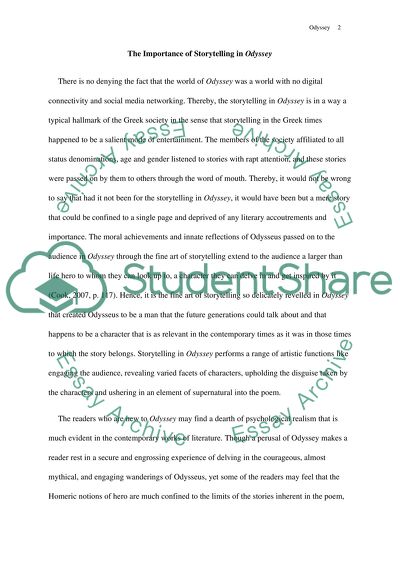Cite this document
(“The Importance of Storytelling in Odyssey Term Paper”, n.d.)
The Importance of Storytelling in Odyssey Term Paper. Retrieved from https://studentshare.org/literature/1477455-the-importance-of-storytelling-in-odyssey
The Importance of Storytelling in Odyssey Term Paper. Retrieved from https://studentshare.org/literature/1477455-the-importance-of-storytelling-in-odyssey
(The Importance of Storytelling in Odyssey Term Paper)
The Importance of Storytelling in Odyssey Term Paper. https://studentshare.org/literature/1477455-the-importance-of-storytelling-in-odyssey.
The Importance of Storytelling in Odyssey Term Paper. https://studentshare.org/literature/1477455-the-importance-of-storytelling-in-odyssey.
“The Importance of Storytelling in Odyssey Term Paper”, n.d. https://studentshare.org/literature/1477455-the-importance-of-storytelling-in-odyssey.


